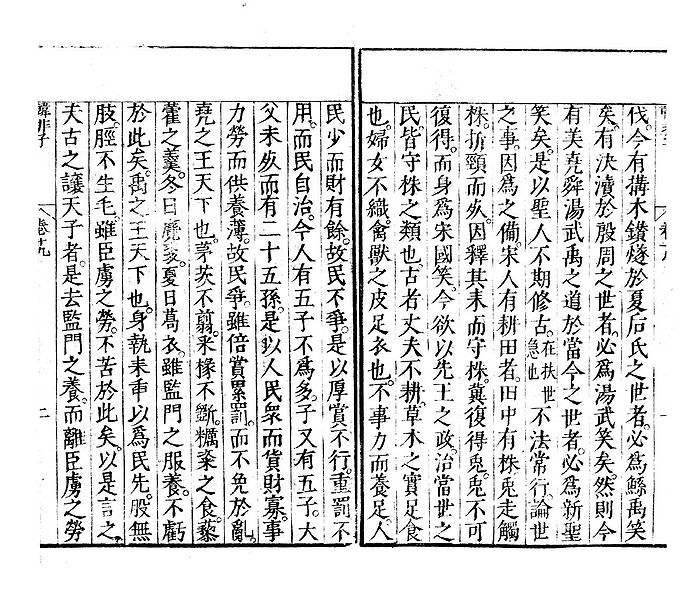(Translation) 2019 守株待兔
| Primary Source | ||
|---|---|---|
 |
Title | |
| English | Waiting for a hare while guarding the tree | |
| Chinese | 守株待兔(Shouzhu daitu) | |
| Korean(RR) | 수주대토 | |
| Text Details | ||
| Genre | ||
| Type | ||
| Author(s) | Han Fei zi 韓非子 | |
| Year | ||
| Source | ||
| Key Concepts | ||
| Translation Info | ||
| Translator(s) | Participants of 2019 JSG Summer Hanmun Workshop (Intermediate Training Group) | |
| Editor(s) | ||
| Year | 2019 | |
Original Script
Translation
Student Translation : Ethan
There was a Song man who plowed fields, in the fields was a tree stump. A hare ran, collided with the tree stump, broke its neck and died. So the Song man untied his plow and guarded the tree stump in expectation that he would obtain another hare. As for the hare [however], the man could not obtain one again. And so the Song man became himself the object of statewide laughter. All those now who desire to rule the people of today with the laws of kings past belong to the variety who guard tree stumps. In the past, the fruit of plants and trees were enough to eat without grown men plowing; the skins of bird and beast were enough to clothe without women weaving. No strength was needed to have enough for nourishment; the people were few in number and had a surplus of wealth, and so they did not fight, meaning that without circulating large rewards and using heavy punishment, the people ruled themselves. Now, a person does not consider five a lot of sons to have; sons also have five sons and grandfathers live to have twenty five grandchildren, meaning that the people are many and the wealth is scarce; strength is exhausted though provisions remain thin, and so the people fight. Though we may multiply rewards and aggravate punishments, we cannot avoid turmoil.
- Discussion Questions:
(YO) I like your way of translating 大父未死而有二十五孫 (grandfathers live to have twenty five grandchildren). But for 是以 that follows it, "meaning..." doesn't seem to make it clear. Hanfei is saying that people are having too many children and because of that (是以) people are many and wealth is scarce.